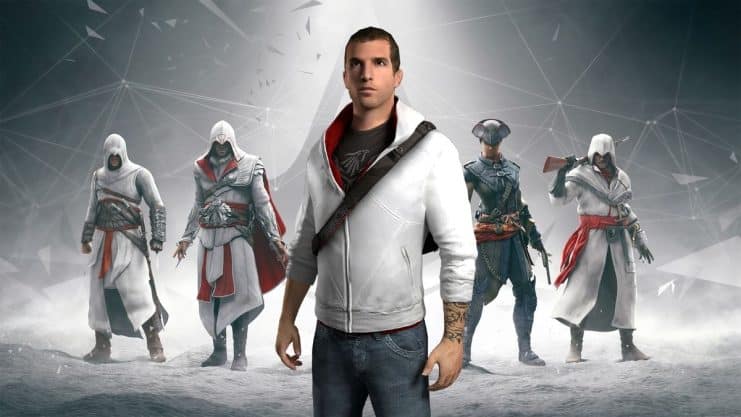
The creative director of Assassin’s Creed 3 reveals that Ubisoft’s saga should have ended with a game set entirely in the present


The original plan
As Hutchinson explained in an interview with FRVRthe initial plan was simple: Assassin’s Creed, Assassin’s Creed II and a third installment focused entirely on Desmond, on set in the present. “It was a trilogy. Two games as you know them and then a Desmond game, and that was it,” he confessed.
The idea was to close the arch with a epic ending in the presentin which Desmond will use the skills inherited from his assassin ancestors to save the world. No medieval Templars or Renaissance Rome: the ending would be contemporary, with Desmond taking control of the Animus to become the ultimate assassin.
However, the unexpected success of the first two episodes changed the rules of the game. Ubisoft saw the commercial potential of the saga and decided to extend it before reaching the expected result. “The problem with success is that it lengthens everything”Hutchinson explained. “Ubisoft squeezed in two more games before we could finish the story.”
From DLC to full game
Those two games were Assassin’s Creed: Brotherhood Yes Assassin’s Creed: Revelations. The first, in fact, It would have been simple downloadable content From Assassin’s Creed IIbut it ended up becoming a full-fledged sequel that expanded the adventures of Ezio Auditore. That commercial turn completely altered the timing and structure of the story.
Hutchinson acknowledges that the development team had to do this redirect the narrative with Assassin’s Creed 3bringing attention back to the historical essence that players had fallen in love with. “We didn’t want the saga to get lost in its own navel,” he comments, pointing out that many franchises die when they become too dense in their own mythology.


Desmond’s death and narrative reboot
When it was finally time to wrap up Desmond’s storyline Assassin’s Creed 3Ubisoft opted for a courageous and controversial ending. Killing the modern protagonist was the right way give a new starting point to the saga without forcing new players to carry forward all the previous continuity.
“In games like Assassin’s Creed or Far cry“There should always be a clean entry point,” Hutchinson said. “We didn’t want to become guardians of tradition, controlling every detail from 17 years ago.”
The creative compared the situation with what happened in the genre of real-time strategywhich became too technical and ended up losing its audience until the rise of MOBA. Ubisoft, therefore, has decided Don’t repeat that mistake and keep the saga accessible to new players.
A legacy that refuses to die
Despite Desmond’s death, the franchise has done nothing but grow. What should have been an endpoint became a new beginning. Since then, Assassin’s Creed It has spanned centuries and cultures: from Egypt to Greece, from Victorian England to feudal Japan.
Hutchinson himself acknowledges that, although the original story had a clear conclusion, the evolution of the saga was inevitable: “As time goes on, series have to reinvent themselves or they die. Assassin’s Creed “He survived precisely because he dared to do so.”


Today, nearly two decades after the first game, Ubisoft continues to expand its universe with titles like Assassin’s Creed Shadowsreleased this year, which takes us to 16th century Japan. What began as a closed trilogy has become one of the longest-running and most recognizable franchises in the world of video games.
Desmond Miles may be dead, but his legacy—and that of the Assassins— even more alive than ever.


